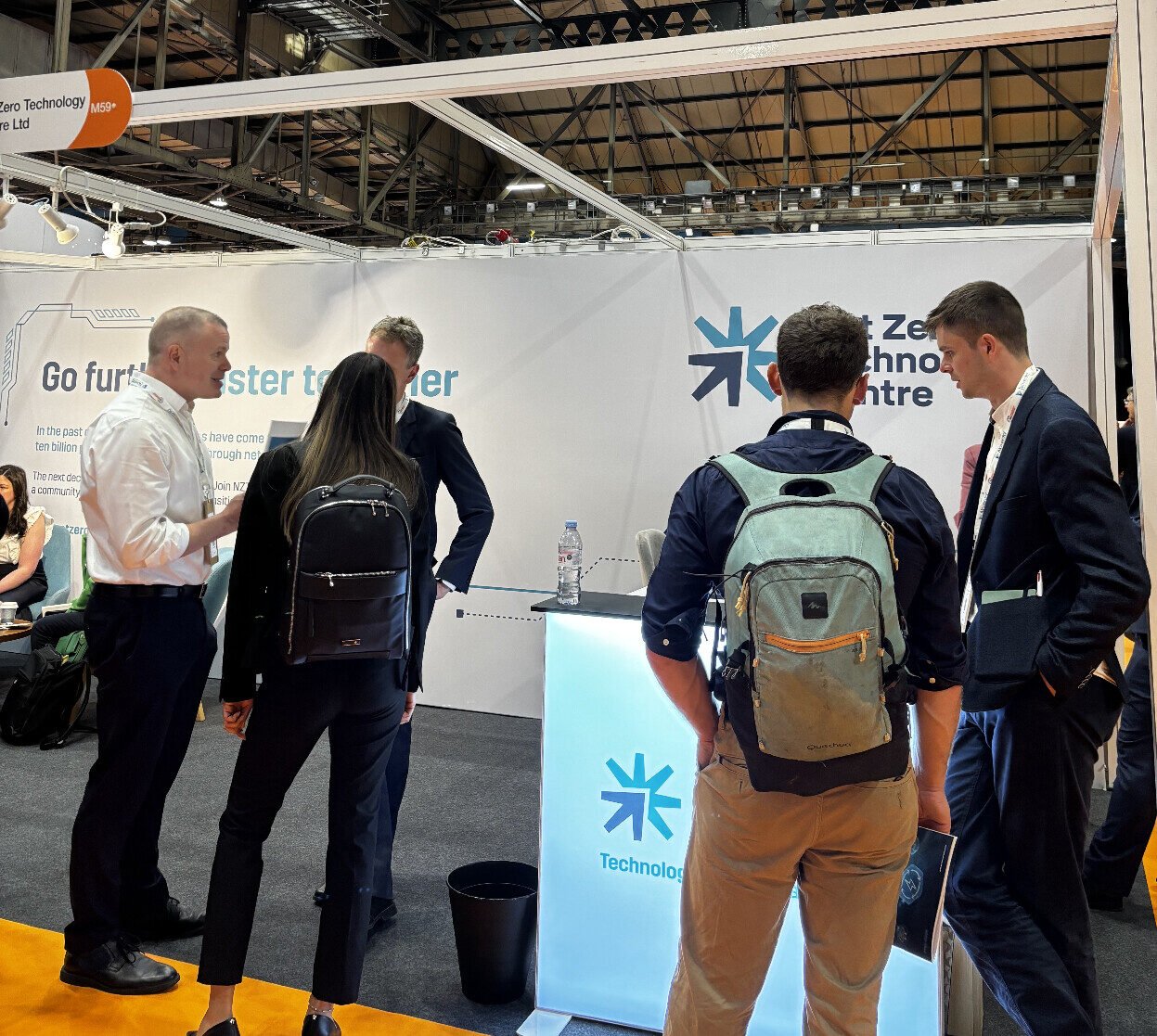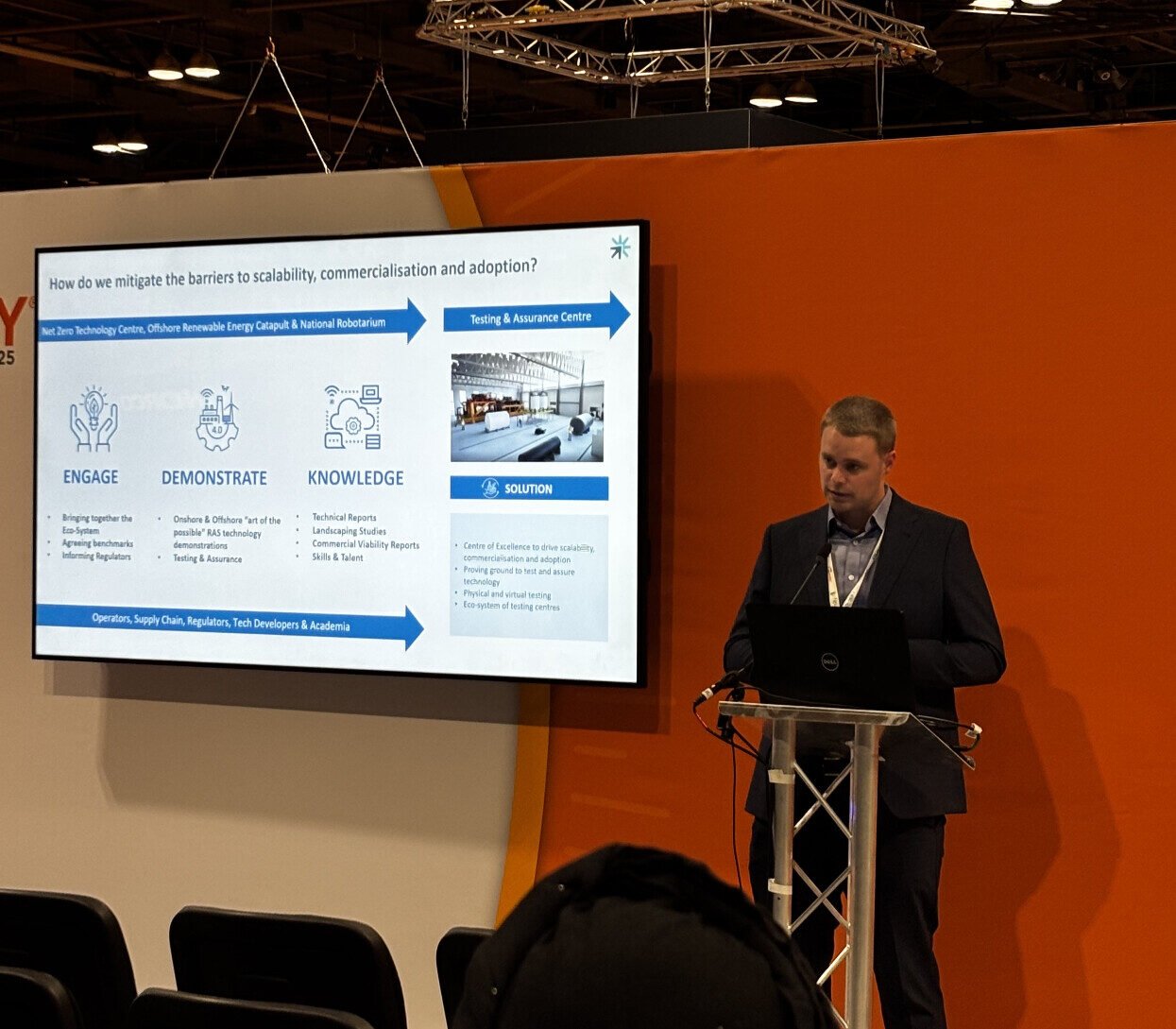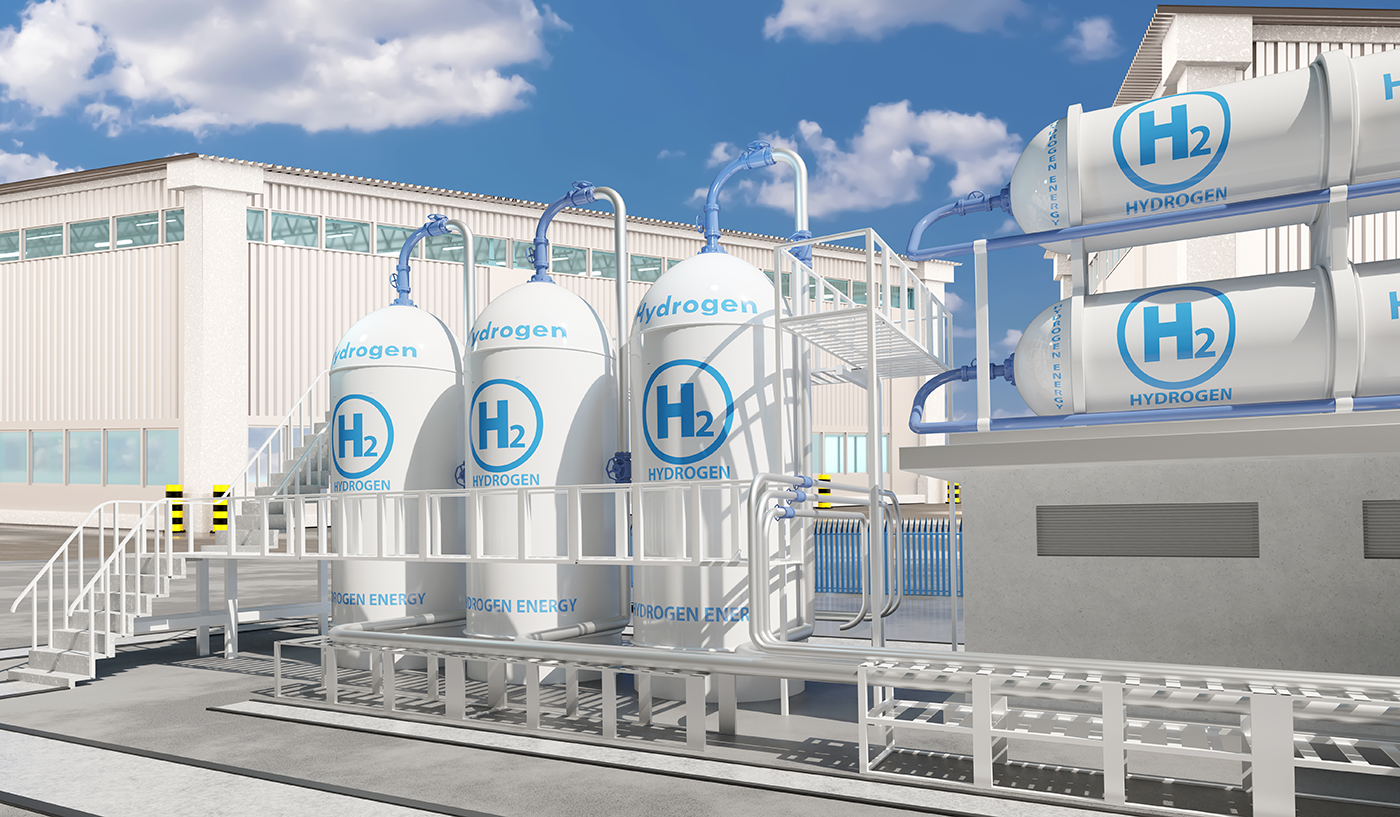NEWS & INSIGHTS | Opinion
“Collaboration is non-negotiable”: Experts at All-Energy 2025 call for united action on net zero

The UK’s premier low-carbon energy and renewables event, All-Energy, was held on May 13–14, uniting hundreds of industry professionals for two dynamic days of insightful discussions, in-depth project reviews and valuable networking opportunities.
With the UK pressing forward on its net zero journey, the event delivered a valuable snapshot of current progress, ongoing obstacles and the bold innovation and strategic partnerships required to drive real impact.
The Net Zero Technology Centre (NZTC) played a central role at All-Energy this year, with our CEO and several of our experts leading key presentations and panels across both days. Here are the highlights in case you missed them –
DAY ONE: Unlocking the Offshore Opportunity
Offshore wind, carbon storage and sector integration were key themes running across the NZTC sessions on day one of All-Energy.
NZTC’s Martyn Tulloch joined senior leaders from the North Sea Transition Authority (NSTA), The Crown Estate, Scottish Renewables and Cerulean Winds to kick off the event with a dynamic panel exploring the UK’s offshore energy future. The discussion delivered key insights across topics including:
- The first carbon storage permit for the East Coast Cluster
- 5GW of offshore wind projects awarded in AR6
- NESO’s recommendation of up to 50GW capacity by 2030
- Calls for greater integration to avoid siloed systems and costly inefficiencies.
Their message was clear: the UK can’t afford disconnected innovation. Integration is the key to unlocking the full potential of the energy transition.
Robotics at Sea: The OLTER Project
NZTC’s Andy Bell followed with a presentation on the pioneering OLTER Project; a breakthrough in Robotics and Autonomous Systems (RAS). From Beyond Visual Line of Sight (BVLOS) drone trials to digital twins, and AI-driven decision support, the project is transforming offshore efficiency, safety and sustainability.

Key innovations that Andy explored during the session included:
-
- Data and competency hubs to simulate and test new RAS vehicles
-
- Field trials with Skyports and Fugro
-
- A vision for a new state-of-the-art testing and certification centre to prove concepts and build industry trust
His takeaway was that strategic alliances, co-development and data sharing are essential to scaling RAS across the sector.
Hydrogen at Sea: HOP2 Progress
Next up, NZTC’s Emma Swiergon took the stage alongside experts from Arup, MottMacdonald, VWS Westgarth and the NSTA, to reveal the progress made on the Hydrogen Offshore Production 2 Project (HOP2) — a phased project exploring large-scale offshore hydrogen production.
She outlined the three core phases:
- Phase 1: mapping feasibility, and repurposing oil and gas infrastructure to generate 500MW hydrogen generation
- Phase 2: tackling design optimisation, favouring compact, low-maintenance systems such as multi-effect distillation over sea water reverse osmosis (SWRO)
- Phase 3: adapting technologies for harsh offshore/marine environments and aligning with UK innovation priorities
The panel’s core message was one of momentum: the tech is maturing; now’s the time to collaborate and commercialise it.
Digitising the Energy System
Rounding off day one, NZTC’s Graeme Booth joined a panel focused on digital data, AI and cyber security, which saw industry leaders tackle the challenging subject; how can the sector connect the digital dots and protect organisations against growing cyber threats whilst benefitting from AI?

With cybersecurity attacks on the rise and AI evolving at pace, the discussion, which was chaired by Siemens Energy’s Matthew Knight, emphasised the importance of building resilience. The experts also covered why regulation must continue to evolve in-line with the changing threat landscape and the need for businesses to prepare to safeguard their operations against bad actors.
During the lively discussion, Graeme reinforced that digital technologies are needed to secure the next phase of the energy transition and that our relationship with AI needs to evolve to one of trust to ensure that we reap the benefits.
DAY TWO: Scaling Innovation in Hydrogen and Remote Operations
A common theme underpinning the second day of All-Energy was ‘floating wind meets hydrogen’.
Coffees in hand, buoyant from the first day of the thought-provoking sessions, the crowd attended an early morning presentation from NZTC’s Jason Paterson on the Thursday. He presented the latest developments on the Floating Wind2Hy project, which combines offshore wind with hydrogen production to overcome grid bottlenecks.
Highlights of the session included:
- Scoping out offshore electrolysis as a flexible, efficient alternative to grid-based electrification
- How WINTOG (wind innovation and targeted oil and gas) and Innovation Networks (part of INTOG – innovation and targeted oil and gas) can align with pilot projects and reduce risk
- A call to lower Levelized Cost of Hydrogen (LCOH) through tech innovation and asset reuse
Key takeaway from the session was that hydrogen and floating offshore wind are crucial components of the future energy system in the UK and Europe. NZTC is committed to overcoming technology barriers to achieve an integrated net zero energy system and has published its innovation priorities for 2025-2035.
Building the Hydrogen Supply Chain
Later on that day, NZTC’s Hayleigh Barnett joined a panel chaired by NZTC CEO Myrtle Dawes, spotlighting the Ocean REFuel programme; a multi-university and industry initiative exploring hydrogen production from offshore wind.

Discussions during this panel centred on:
-
- Creating a resilient green hydrogen supply chain
-
- Aligning technology development with regional socio-economic realities
-
- The importance of cross-sector partnerships to scale impact.
Remote Operations: A Game-Changer
As the two-day event concluded, NZTC’s Kevin Gallagher shared key findings from the Advancing Remote Operations (ARO) project; an ambitious initiative aimed at transforming offshore operations through automation, digitalisation and process re-engineering.
Kevin talked the crowd through the impact of Scottish Government funded ARO, which included these three key achievements:
- Delivering a Remote Operations Playbook
- Conducting a Cross-Industry Landscape Study
- Developing a decision support tool to identify automation opportunities
Whilst real-world trials showcased the potential of remote ops including:
- Automated drone deliveries for logistics, and
- 3D laser scanning for remote inspections and modifications
Kevin also shared NZTC’s vision for a new centre of excellence where technology can be integrated, tested and assured with the aim of accelerating industry adoption.
He discussed the importance of establishing a physical hub to foster greater cross-sector digital innovation, connecting skills, and ultimately, bringing ground-breaking digital solutions for the energy sector to market quicker than ever before.
The message: remote operations are not just efficient, they’re essential for achieving a low-carbon, high-performing energy future.
Final Thoughts: A Roadmap to Net Zero
All-Energy 2025 made one thing clear: collaboration and integration are non-negotiable.
From robotics and autonomous systems to hydrogen and offshore wind, the innovations are already here; but scaling them means breaking down silos, investing boldly and enable more widespread knowledge sharing and data integration.

The NZTC’s presence at All-Energy this year underscored our organisation’s committed leadership in guiding the UK energy sector through a pivotal transition. With a pipeline of impactful projects and key partnerships in motion, the journey to net zero is looking more coordinated — and more achievable — than ever before
Subscribe for the latest updates


